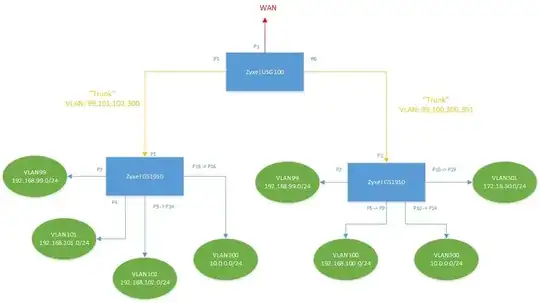I'm trying to decide whether I should buy SIP trunks from my ISP or a 3rd-party.
and...
Is QoS an issue for VOIP calls over the Internet?
Short answer:
End-to-end QoS is NOT offered on the public internet. On private networks, QoS matters if the business thinks it's important enough to pay for.
Before we go to far into the weeds, let's point out that VoIP QoS is very easy to say and exceedingly tedious to do correctly. Another point: QoS isn't a magical bandwidth creation technique; it is a tactical solution which chooses whose packets are delayed vs immediately dropped.
If you have heavy network congestion, many VoIP and non-VoIP packets will drop; QoS won't matter much. Consistent packet drops mean you need to buy a bigger circuit.
Also, whether you deploy IP QoS on private networks is related to the extinction of these:

Phone booths are now extinct because everybody has a cell phone in their pocket.
- Phone booths historically sat directly on the circuit-switched PSTN and packetized VoIP / IP QoS did not even exist.
- Cell phones make calls with packetized VoIP (which typically use SIP in some way).
Long Answer:
Q&A
it's important to maintain QoS on an internal network (i.e. prioritize VOIP
traffic).
In practice, many enterprise networks get away with no voice QoS because they simply don't have enough network congestion to matter.
On the other hand, service provider networks may consider deploying voice QoS where it makes sense. Some of that depends on what kind of service the provider sells. More about this below...
My ISP says that traffic from their SIP trunks goes over their
QoS-managed network to the PSTN.
Many enterprise networks buy dedicated / private SIP trunks to VoIP service providers (who use their private VoIP networks to connect to the PSTN) so the enterprise network team doesn't have to burn a lot of time deploying QoS and managing complaints about excessive VoIP drops. This is what I recommended to my employer. We bypass the effort of VoIP QoS packet marking / queueing because our corporate network is nothing close to congested.
There are lots of 3rd party SIP providers. From a theoretical perspective,
I don't understand how they can ensure call quality.
and...
My ISP says that traffic from their SIP trunks goes over their QoS-managed network
to the PSTN. However, the public Internet does not maintain QoS, so if
my call were to go over the Internet to a 3rd-party SIP provider, wouldn't
there be degraded call quality?
VoIP providers sending / receiving internet VoIP traffic can NOT control call quality... even if they never drop VoIP packets on their private VoIP networks, internet circuits ahead of their VoIP circuit demarcs indiscriminately drop VoIP packets and do not care.
I used to work for a regional ISP; on Friday nights (when our network congestion normally increased) we would get piles of complaints about VoIP calls dropping.
Yet the proliferation of these services would seem to indicate that
I am wrong.
Arguably, the proliferation of those services means that some people will sacrifice potentially lower call quality for a less expensive service. IMHO, many of those people are home / small business networks.
Background info about the phone booth comment
After the breakup of the Bell companies, there was a lot of competition for phone business; it was viewed as quite lucrative, because of the monthly revenue stream from it.
The circuit-switched PSTN has rigorous standards around delivering voice services, such as Telecordia GR-series standards. These standards and voice services competition meant that customers expected increasingly better voice quality over time.
Another point about this period, people kept spare change in their pockets and ashtrays to make calls on the road (in a phone booth, see picture above).
To some people that may sound strange, because you have a phone in your pocket; however, cell phones only started becoming common in the 1990s. Early cell phones forced people to start compromising their call quality expectations; the portability and convenience of cell phones came with a price... cell phone call quality was noticeably worse (some would even say "horrible").
This is no small point, until cell phones became common, companies could go out of business for delivering bad voice quality. However, as people used cell phones, their expectations for phone call quality gradually got lower. In a way, cell phones opened the door to those "internet voice providers".
Furthermore, the proliferation of cell phones made phone booths extinct.
